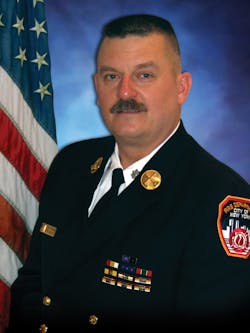There are many different tactics, tools, procedures, tasks and responsibilities that are in play for firefighters every day. Think of all of the programs and presentations you have attended at conferences and at your department’s training events, and it is pretty mind-boggling—air management, accountability, hoseline operations, forcible entry, roof cutting, wildland tactics, EMS, search and rescue, rapid intervention, command, leadership, ventilation, emergency response hazards, defensive operations and much, much more. When you start to think about each of the fields, it makes you wonder how every firefighter, officer and chief handles their individual responsibilities.
The truth is that we simply can’t handle or even ponder all of these topics—and that’s good. In fact, firefighters would be served well by all of us doing our best to keep it simple. What do I mean by that? In short, make an effort to limit the number of issues and responsibilities that each of us has to manage in our various ranks. Let’s take a look at how we can make our work more focused and successful.
Rank and responsibility
If we think about a firefighter who works in a fire department that runs engines and ladder companies, we can start to list the skills and abilities that they may be required to master. Donning, wearing and operating in PPE is one of the most basic skills. Proper use and maintenance of SCBA is also a basic yet vital ability. Stretching, advancing and operating the nozzle and working each of the other hoseline positions is yet another entry-level skill. Further, basic truck skills like forcible entry, saw operations and using portable ladders are key skills, as are search and rescue and rope work.
Are there skills that company officers need to master that have little or no involvement for firefighters? Well, certainly there are duties and responsibilities that officers handle without the help or assistance of firefighters. Direct supervision on the fireground is certainly an important part of being a good company officer. Giving proper assignments to firefighters and controlling and directing the efforts of a company or team of firefighters is pretty much the exclusive responsibility of company officers. Discipline and related topics are also on the company officer’s list of required skills, and can’t be delegated to firefighters or other non-supervisory members. Developing and implementing fireground strategies is another company officer skill that, when dovetailed with good communications abilities, is often the exclusive realm of the company officer.
Chief officers working on a regular basis with firefighters and officers have yet another list of issues and skills for which they alone are responsible, both in quarters and at emergency scenes. When commanding emergency operations, chief officers own the command function. Yes, there are several layers of command responsibilities that exist, both administratively and operationally, but the chief has the final say. Command chiefs single-handedly implement strategies at many types of fires and emergencies. They certainly use the feedback and input of company officers and other chief officers but, ultimately, the strategic decision is theirs alone. Safety is obviously a serious consideration at fire department operations, and of course both firefighters and company officers are charged with operating in a safe manner. We want everyone in every rank to operate safely, but the responsibility for implementing and enforcing safety on the fireground, in responding and even back at the firehouse belongs to the chief.
Know your role
You can see here that there are many different areas of expertise and many different types of skills and abilities that are being conducted on the fireground, during training and even back in the firehouse—skills and abilities that are handled by the different groups or ranks. Young firefighters should be allowed to concentrate on the tasks and skills that they will be performing without worrying about issues that are the obvious responsibility of a company officer. Company officers should be encouraged to focus on the vital issues that they are operationally and administratively responsible for rather than issues that are better handled by the chief. And, of course, the chief has a full plate of their own without concerning themselves with issues that are being handled by their subordinates.
About the Author
John J. Salka Jr.
Battalion Chief
JOHN J. SALKA JR., who is a Firehouse contributing editor, retired as a battalion chief with FDNY, serving as commander of the 18th battalion in the Bronx. Salka has instructed at several FDNY training programs, including the department’s Probationary Firefighters School, Captains Management Program and Battalion Chiefs Command Course. He conducts training programs at national and local conferences and has been recognized for his firefighter survival course, “Get Out Alive.” Salka co-authored the FDNY Engine Company Operations manual and wrote the book "First In, Last Out–Leadership Lessons From the New York Fire Department." He also operates Fire Command Training, which is a New York-based fire service training and consulting firm.

